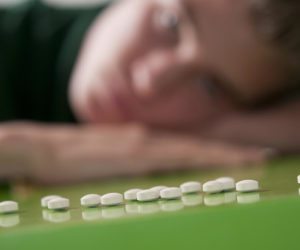Depression and Drug Abuse Statistics

Depression and Drug Abuse Statistics
There is a long-standing link between depression and alcohol abuse. However, recent depression and drug abuse statistics reveal that a high percentage of people experiencing symptoms of a substance abuse disorder are at a greater risk of developing symptoms of at least one mental health disorder.
According to depression and drug abuse statistics published by the National Institute on Drug Abuse, people who struggle with a substance abuse disorder are almost twice as likely to suffer from mood and anxiety disorders as well. Conversely, 51% of people with a mental health disorder also had at least one substance abuse disorder.
Addiction and Depression Facts
It’s common for many people to underestimate the severity of struggling with two or more disorders simultaneously. For many people, the symptoms of an undiagnosed or improperly treated mental health disorder can act as a trigger for substance abuse. Sufferers may have an increased tendency to attempt to self-medicate.
However, there is also evidence showing many people caught in the grip of a drug or alcohol addiction may develop symptoms of mental illness, or worsen existing symptoms. Here are some additional addiction and depression facts to consider.
Fact 1: Drug Addiction Depression Is Called Dual Diagnosis
Depression and drug abuse statistics indicate that the link between the two disorders is more common than many people realize. Dual diagnosis is the term used to describe a person struggling with a substance abuse disorder at the same time as having symptoms of at least mental health disorder.
Fact 2: Depression Can Be a Gateway to Addiction
According to information published on DualDiagnosis.org, depression is often linked to being a gateway disorder to a dysfunctional pattern of drug or alcohol abuse. A person struggling with symptoms of depressive illness may attempt to elevate mood or escape from dark feelings or numb painful emotions using drugs or alcohol. While the substance may provide temporary relief, alcohol and many types of drugs can worsen symptoms of depression, which sparks a vicious cycle of substance abuse.
Fact 3: Dual Diagnosis often Goes Untreated
In the past, people struggling with addiction and a mental illness were often sent to completely separate systems of care for treatment. The person wasn’t able to access the mental health care they needed until after they got clean and sober. As a result, a large number of people went without receiving the specialized treatment they needed.
Fortunately, there are a number of professional rehab facilities that are aware of the astounding depression and drug abuse statistics, as well as the importance of providing integrated treatment programs to treat both disorders simultaneously.
Fact 4: Improper Treatment Increases Relapse Risk
If a person with dual diagnosis completes rehab without simultaneously addressing the symptoms of mental illness, the risk of relapsing back into a self-destructive pattern of substance abuse is increased. Completing the detox process only rids the body of the effects of the drug. However, detox does nothing to address the psychological triggers behind behaviors associated with substance abuse.
Fact 5: Integrated Treatment for Drug Addiction Depression
Despite the overwhelming number of addiction and depression facts available, many rehab centers don’t provide the correctly integrated treatments people with dual diagnosis need. Yet struggling with drug addiction depression, or any other mental illness requires specialized treatments that take both disorders into account.
Entering into a specialized dual diagnosis rehab facility improves the likelihood of making a successful recovery. Addiction specialists incorporate effective use pharmaceutical treatment for the psychiatric condition. However, both the addiction and the co-occurring mental illness receive the same level of care and treatment during the rehab process. When the underlying symptoms of mental illness are effectively treated, the triggers that encourage substance use are more easily managed.
If you or a loved one needs help with abuse and/or treatment, please call the WhiteSands Treatment at (877) 855-3470. Our addiction specialists can assess your recovery needs and help you get the addiction treatment that provides the best chance for your long-term recovery.
